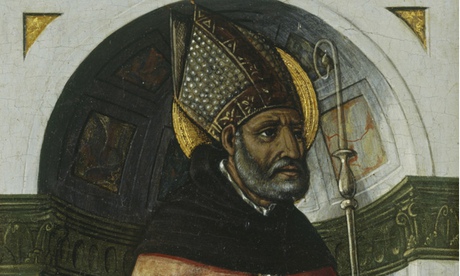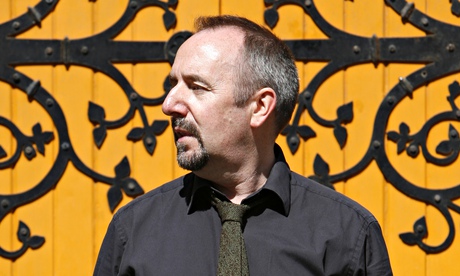There’s a great portrait of Benjamin Fondane by the surrealist photographer Man Ray on the front cover: Fondane looks down towards his cupped hands, slightly above which floats his dismembered head looking at us, or the camera. It is a playful image with an uneasy edge: this is a portrait of the philosopher as magician, and yet it is also an image of someone contemplating their own decapitation. It suggests that Man Ray had read Fondane’s philosophy, which basically asks: what is reason’s role in our lives? Which of those two heads is, as it were, the boss? The image is both that of rationality doubled – as if to say “two heads are better than one” – and of rationality annulled; it is one of surrealism’s more sophisticated jokes.
Fondane (1898-1944) was one of quite a few Romanian writers who drifted towards Paris after the first world war in order to pursue their avant-garde interests (others include Tristan Tzara, Eugène Ionesco and Emil Cioran; the last two were friends of Fondane).
Fondane, who was not just a philosopher but a poet, film-maker and literary critic, might be said to have stretched himself too widely to achieve renown in the Anglophone world; but he’s well known in France, where his kind of intellectual – multidisciplined, impossible to pin down into a single school of thought – is celebrated more than it is in the UK. I was only dimly aware of him, but such was my trust in the editorial policy of NYRB Classics, which, in the decade or so of its existence has yet to publish a dud, that I picked the book up. I am glad I did.
Fondane approached philosophy sideways, as it were, not from the conventional angle of actually considering himself a philosopher. His uneasiness with the enthronement of reason was what contributed to this insecurity about his status, but as his friend and mentor Lev Shestov, the Russian-born existentialist philosopher, wrote to him: “You must not let them treat you as a poet, a mystic. You are a philosopher.” His marginal position allowed him, Shestov said, “to ask more daring questions”.
That was in 1936, when there were plenty of daring questions to ask; by 1940, in Paris, it became too daring to ask them, particularly if you were, like Fondane, Jewish. (As Bruce Baugh, the translator, puts it in his excellent introduction: “Fondane … was exactly the sort of Jew Hitler most wanted to get rid of: ‘an authentic Jew’, rebellious, disobedient, and nonconformist.”)
As for the questions Fondane asked, they revolve around the limitations of philosophy and the value it places on reason above all else. Scepticism about reason makes me uneasy: all sorts of idiocies can creep in when it is indulged. But Fondane does not say anything stupid or groundless. Instead he forces us to confront, like Caliban, our faces in the mirror. In his essay “Man Before History” he berates us for not seeing national socialism as “a distorting mirror that reflects back to us a magnified image of our culture’s defining features”: “we give in to a form of vanity that will come back to cost us dearly sooner or later.” Look, he tells us, where our worship of reason has got us.
He calls instead for “a far-sighted humanism based on human wretchedness” that would not “have saved us from wars, revolutions and cataclysms – these have never been found wanting … but it would certainly have saved us from wars on a national scale, revolutions on a world scale, from mechanized barbarism, from gas and germ warfare – and from racism.” (It is that implicit classification of racism as the worst thing of all that particularly endears me to him.)
The title of the book comes from Fondane’s essay “Existential Monday and the Sunday of History”, itself explained by its epigraph from Franz Kafka’s diary: “You are destined for a great Monday! But Sunday will never end.” Well, Sundays do end. As you may have worked out from his dates given above, Fondane came to a bad end, the worst end, in Auschwitz. He was gassed – the testimonies differ – on either 2 or 3 October. For what it’s worth, 2 October 1944 was a Monday.
• To order Existential Monday for £8.19 (RRP £9.99) go to bookshop.theguardian.com or call 0330 333 6846. Free UK p&p over £10, online orders only. Phone orders min. p&p of £1.99.









